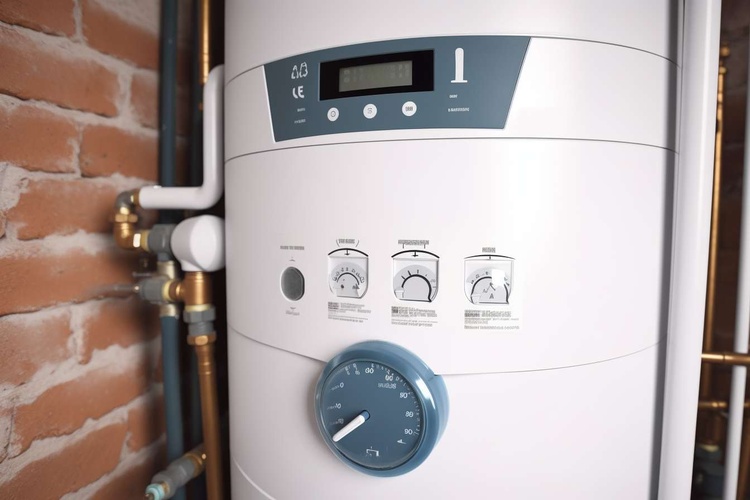Boiler Replacement Grants in 2025: Who Can Claim?
As energy costs continue to rise and older heating systems become less efficient, many UK households are seeking financial support to upgrade their boilers. Government-backed boiler replacement grants offer a lifeline for eligible homeowners and tenants, helping to reduce energy bills while improving home comfort. Understanding the eligibility requirements, coverage details, and application process is essential for those hoping to benefit from these schemes in 2025.

Boiler replacement grants are designed to help households across the UK upgrade inefficient or broken heating systems without bearing the full financial burden. These grants primarily target low-income families, vulnerable individuals, and those living in properties with poor energy efficiency ratings. By replacing old boilers with modern, energy-efficient models, these schemes aim to reduce carbon emissions, lower heating costs, and improve living conditions.
The main scheme offering boiler replacement support in 2025 is the Energy Company Obligation (ECO) scheme, which requires larger energy suppliers to fund energy efficiency improvements for eligible households. Additionally, some local authorities and charitable organisations may offer supplementary support depending on your location and circumstances.
Eligibility Criteria for Boiler Replacement Grants
To qualify for boiler replacement grants in 2025, applicants typically need to meet specific criteria related to income, benefits, property type, and existing heating system condition. The ECO scheme primarily targets households receiving certain means-tested benefits, including Income Support, Jobseeker’s Allowance, Pension Credit, Universal Credit, Child Tax Credit, and Working Tax Credit, among others.
Property eligibility also plays a crucial role. Your home must have an Energy Performance Certificate (EPC) rating of D, E, F, or G to qualify, as these ratings indicate poor energy efficiency. Additionally, your current boiler should be old, inefficient, or broken to justify replacement. Some schemes prioritise households with specific vulnerabilities, such as elderly residents, families with young children, or individuals with chronic health conditions that make adequate heating essential.
Homeowners and private tenants may both be eligible, though tenants typically require landlord permission before proceeding with installation. Social housing tenants should check with their housing provider, as they may have separate arrangements for heating upgrades.
What the Grant Will Cover and What It Won’t
Boiler replacement grants generally cover the full cost of installing a new, energy-efficient condensing boiler, including labour and materials. This means eligible households can receive a brand-new heating system without any upfront payment. The grant also typically includes the removal and disposal of the old boiler, as well as necessary adjustments to pipework and heating controls.
However, there are limitations to what these grants will cover. They do not usually extend to additional home improvements such as radiator replacements, full central heating system overhauls, or cosmetic work. If your property requires significant structural changes or extensive pipework modifications beyond standard installation, you may need to cover these costs separately.
Grants are also restricted to specific boiler types. Most schemes only fund condensing boilers, which are highly efficient and meet current building regulations. Oil boilers, electric heating systems, and alternative heating technologies may not be covered under standard grant programmes, though some specialist schemes exist for rural or off-grid properties.
It is important to note that if your current boiler is still functioning adequately and meets minimum efficiency standards, you may not qualify for a replacement grant, as these schemes prioritise urgent cases and properties with the greatest need for improvement.
How to Apply for Boiler Replacement Grants
Applying for boiler replacement grants involves several straightforward steps. First, determine your eligibility by reviewing the criteria for the ECO scheme or other local programmes. You can check your benefit status and property EPC rating online through government portals or by contacting your local council.
Once you have confirmed eligibility, contact an approved installer or scheme administrator. Many energy companies work with registered installers who can assess your property, verify your eligibility, and handle the application process on your behalf. It is essential to use only accredited installers registered with schemes such as Gas Safe Register to ensure safety and quality standards are met.
The installer will conduct a home survey to assess your current heating system, property condition, and suitability for a new boiler. They will then submit your application to the relevant scheme administrator. If approved, installation can usually be scheduled within a few weeks, depending on installer availability and any necessary preparatory work.
Be cautious of unsolicited offers or companies demanding upfront payments. Legitimate grant schemes do not require advance fees from eligible applicants. Always verify credentials and seek recommendations before committing to any installer or service provider.
Typical Costs and Provider Comparison
While eligible households receive grants covering the full installation cost, understanding typical boiler replacement expenses helps illustrate the value of these schemes. Standard combi boiler installations in the UK generally range from £1,500 to £3,500, depending on boiler model, property size, and installation complexity. System boilers may cost between £2,000 and £4,000, while conventional boilers can reach £2,500 to £4,500 due to additional components and labour requirements.
| Boiler Type | Typical Cost Range | Installation Complexity | Energy Efficiency |
|---|---|---|---|
| Combi Boiler | £1,500 - £3,500 | Moderate | High |
| System Boiler | £2,000 - £4,000 | Moderate to High | High |
| Conventional Boiler | £2,500 - £4,500 | High | Moderate to High |
Prices, rates, or cost estimates mentioned in this article are based on the latest available information but may change over time. Independent research is advised before making financial decisions.
Several reputable boiler manufacturers supply models commonly installed under grant schemes, including Worcester Bosch, Vaillant, Baxi, Ideal, and Viessmann. These brands offer reliable, energy-efficient condensing boilers with strong warranties and proven performance records.
Additional Support and Considerations
Beyond boiler replacement grants, households may access complementary energy efficiency measures through the same schemes. These can include cavity wall insulation, loft insulation, draught-proofing, and heating controls, all designed to maximise energy savings and home comfort.
If you do not qualify for grant funding, alternative options exist. Some energy suppliers offer interest-free loans or payment plans for boiler replacements. Additionally, local authority discretionary funds or charitable grants may be available for households facing financial hardship.
Regular boiler maintenance is essential to ensure longevity and efficiency. Annual servicing by a Gas Safe registered engineer helps prevent breakdowns, maintains warranty validity, and ensures safe operation.
Conclusion
Boiler replacement grants in 2025 provide valuable support for eligible UK households struggling with inefficient or broken heating systems. By understanding the eligibility criteria, knowing what the grant covers, and following the correct application process, you can access financial assistance that significantly improves home energy efficiency and comfort. Whether you qualify through the ECO scheme or local initiatives, taking advantage of these opportunities can lead to substantial long-term savings and a warmer, healthier home environment.




